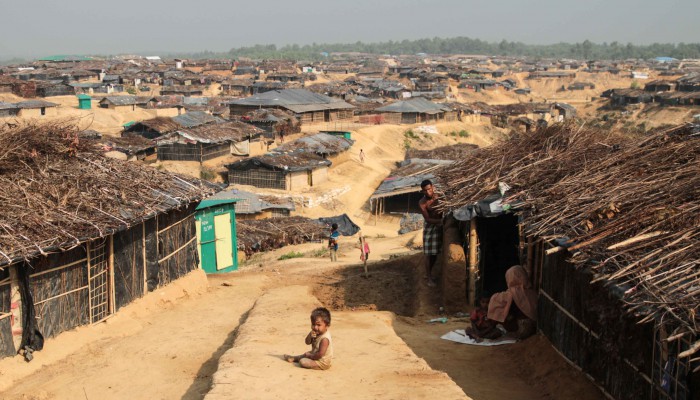Extending a Collective Human Right to Address a Global Challenge: Self-determination for Refugees, Asylum Seekers and Internally Displaced Persons
Forced human displacement is one of the signal challenges of the twenty-first century. UNHCR has reported that, in 2017, 68.5 million people were forcibly displaced by conflict or persecution. This number includes 25.4 million refugees, 40 million internally displaced people and 3.1 million people seeking asylum. In addition, an average of 22.5 million people have been displaced annually, since 2008, by weather- or climate-related disasters. This category of displaced people is predicted to increase as climate change impacts worsen in severity. It is difficult to overstate the complexity of these challenges and, unsurprisingly, no single magical solution has appeared. In this paper, we ask whether the collective human right of self-determination could be of any value in the context of forced human displacement.
This right is the only one to be protected by common Article 1 of the ICCPR and the ICESCR: ‘All peoples have the right of self-determination. By virtue of that right they freely determine their political status and freely pursue their economic, social and cultural development.’ The capacity of human beings to realise their individual human rights is said to be closely tied to the degree to which their community exercises self-determination. Yet, while international law tells us that self-determination is fundamental to the human rights framework, the law is deliberately vague about what the right entails or how far it can stretch. Historical assertions of the right indicate that it operates well beyond the conception of self-determination as independent statehood. Kirgis has identified multiple ‘faces’ of self-determination, from secession and decolonisation, to the reunification of states, sub-state autonomy, minority rights and even choice of form of government.
Self-determination is necessarily a right with many potential manifestations, and what is appropriate must be determined by the people exercising the right. All peoples may continue to aspire to a greater degree of self-determination in the future, whether through changes to borders, governments, or social and economic circumstances. In the context of refugees and other forcibly displaced peoples, though, should we accept that some people have no effective access to self-determination because of the status they bear in relation to their home or host state? An ambitious extension of self-determination would push the right to populations not united by national or other shared identity, but by shared experience. The experience of displacement is dislocating and limits the capacity of affected populations to participate in the ongoing process of self-determination. In contrast, ideas central to self-determination – for example, political representation, collective capacity to shape social, economic and cultural destiny, and the means to make human rights demands of nation states – could be empowering to people in particularly vulnerable circumstances.
This paper raises a question but considerable further inquiry will be required to generate answers. To extrapolate the right of self-determination for forcibly displaced peoples would challenge the assumption that the right always involves a claim within or against an individual state. Instead, we are wondering whether self-determination can also be conceived as a value or principle empowering marginalised and vulnerable peoples. If so, perhaps refugees and other forcibly displaced peoples might see value in asserting self-determination and identifying themselves as rights claimants, so promoting the greater alignment of the needs-based refugee law model with a human rights-based model more focused on humanity and human experiences.
1 Response
Leave a Reply
You must be logged in to post a comment.

Pingback : Thematic Focus: General – AnAttorney.com